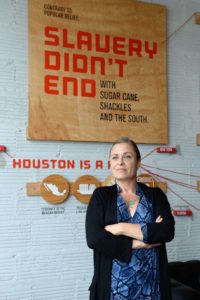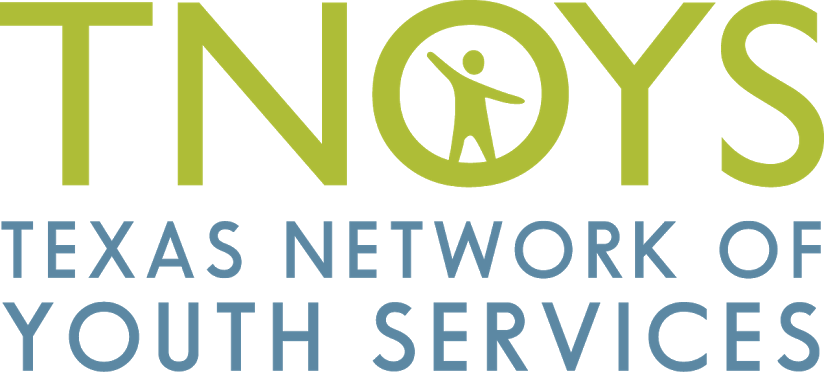
Photo credit: Allison Franklin
In our final blog post as part of Human Trafficking Awareness Month, we sat down with Allison Franklin, Senior Director of CARES for TNOYS member organization SAFE Alliance. Allison is an experienced leader and advocate for youth victims of commercial sexual exploitation, having worked with The Texas Criminal Justice Coalition and advocated for policy changes at the state, local, and national level. Now, Allison is leading CARES, a program through which the SAFE Alliance provides services such as a drop-in center and 24/7 crisis response for victims of CSEY.
Allison’s work is guided not only by her professional expertise, but by her lived experience. At TNOYS, we strongly believe in giving youth and families a voice in the services and support they receive, and the impact Allison and her life experience have had on the CARES program provide an excellent example of why this approach is so successful. Allison’s childhood was marked by severe sexual assault and, after running away several times, she was homeless on the streets of Houston at age 11. Allison was picked up by her first predator within an hour of becoming homeless, setting in motion a years-long cycle of abuse, drugs, gangs, and controlling relationships.
During this time Allison suffered numerous assaults, and she was eventually groomed and offered protection by a trafficker. In the years that followed, she was arrested on multiple occasions for crimes that occurred due to extensive trauma-bonding with her trafficker. As part of this trauma-bonding, Allison repeatedly took the fall for her trafficker’s drug operation, ultimately shielding him from criminal justice involvement.
This cycle began to change when Allison was facing her ninth felony, for drug charges. Facing 25 years to life, she was instead granted probation. “It was by a miracle that I actually got probation,” Allison explained. “For the first time in my experience, after eight felonies, I actually had access to meaningful services that were individualized and specialized to meet my high, complex needs. These services were gender-specific, survivor-centered, compassionate, and choice-based”.
In order to facilitate her recovery, Allison had to take another big step: identifying herself as a trafficking victim. With help from her parole officer and counselors, Allison was able to make the connection that she had been trafficked. This realization enabled her to truly make the most of the survivor-centered services that she was being offered for the first time.
A Trauma and Advocacy-Informed Approach at CARES
Through her experience and advocacy work, Allison knows how crucial it is for CSEY survivors to have access to survivor-centered, trauma-informed support services from the beginning. Allison’s own tenacity and resourcefulness were essential in helping her exit “the life”, and it is important for her to provide young survivors with the support and programming that she so often didn’t have.
The idea for CARES came out of a collective effort from numerous stakeholders across the state. As part of this effort, Allison worked with the governor’s office to identify gaps in the existing continuum of care for trafficked youth. Findings included the need to provide specialized programs and services that are tailored to the specific needs of youth trafficking victims, such as drop-in centers and care coordination.
Above all, it is important to Allison that CARES is a safe space for survivors to navigate and build healthy relationships — a crucial aspect of her own recovery. As Allison explained, “I had been court-ordered to get sexual abuse therapy countless times. The one time I had a therapist who attempted to connect with me as a human being, and not just as a JOB, I was able to start peeling back those layers of myself. Same with my parole officer…this individual was transparent, and able to meet me in my own humanity. That’s what turned this around. The fact that I finally had a judge meet me with compassion, rather than punishment— that was a game changer. It’s all about relationships.”
Moving forward, Allison hopes to secure funding to build CARES around youth leadership, empowering individuals to lead and discover their own efficacy and agency in the program. “We need to give youth an opportunity to identify their future, not just work to heal their past. This is something that is so hard when they are in survival mode. I see being able to bridge that gap as a huge part of CARES’ future.”
